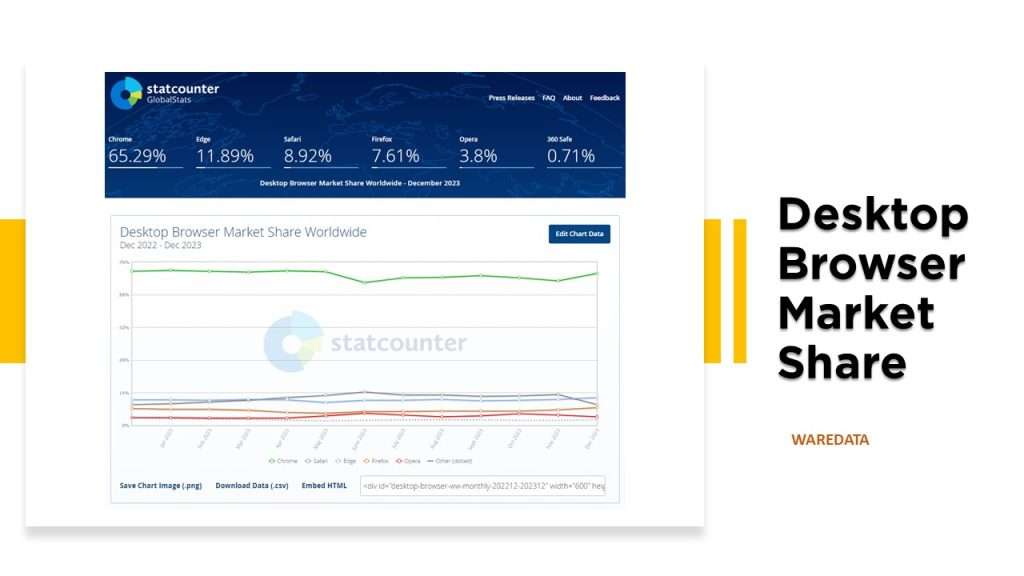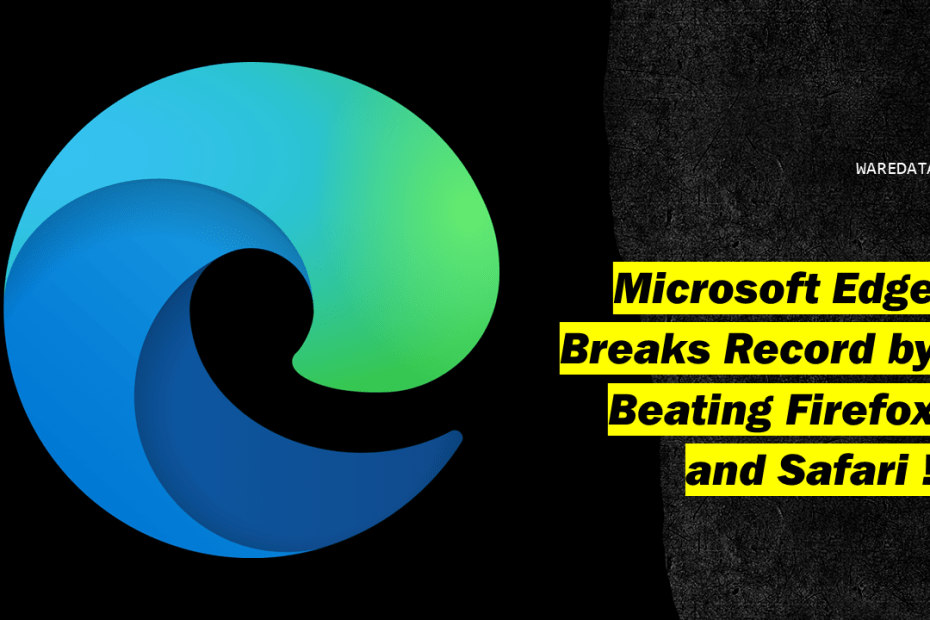In December, StatCounter reported a notable shift in browser market shares without providing a clear explanation for the changes. Safari experienced a decline of 4.34 percent during this period, while Microsoft Edge saw an increase of 0.67 percent, and Firefox grew by 0.93 percent. It raises questions about the potential influence of new computers, possibly received as holiday gifts, running the recently released Windows 11. As we await the next monthly report, it remains uncertain whether these shifts indicate a developing trend or if they are merely holiday-related anomalies. Interestingly, a similar pattern was not observed at the conclusion of the previous year in 2022.
The reasons behind Safari’s decrease and the simultaneous growth of Edge and Firefox remain speculative, and the impact of new Windows 11 devices during the holiday season is just one potential factor. Whether this marks a lasting change in browser preferences or is a unique occurrence tied to the festivities will become clearer in subsequent reports. The absence of a parallel trend at the end of 2022 suggests that these recent fluctuations may be specific to the holiday season, emphasizing the importance of continued observation to discern any emerging patterns in the dynamic landscape of browser market shares.
Closing out 2023, Google’s Chrome continued to dominate the global desktop browser market with a commanding 65.29 percent share, marking a significant month-over-month increase of 3.17 percentage points. The more intriguing development, however, occurred in the race for second place. Microsoft Edge managed to surpass Safari, securing its highest market share to date at 11.89 percent. Meanwhile, Apple’s Safari experienced a decline, ending the year with a reduced desktop browser market share of 8.29 percent. This shift in rankings adds an interesting dynamic to the landscape and highlights the ongoing competition among major browsers as they jockey for user preference and market share.

The data from StatCounter provides valuable insights into the evolving trends in the desktop browser market. While Google’s Chrome maintains a stronghold, Microsoft Edge’s ascent to second place and Safari’s decline emphasize the fluid nature of user preferences and the competitive strategies employed by browser developers. As we move forward, observing how these trends unfold will be crucial for understanding the dynamics that shape the browser market and the factors influencing users’ choices.
In the global desktop browser landscape, Mozilla’s Firefox concluded the year 2023 with a market share of 7.61 percent. The browser has maintained a steady presence, and its position in the market reflects the preferences of a significant user base. While not in the lead, Firefox continues to be a notable player, contributing to the diverse array of choices available to users.
Opera, another contender in the desktop browser market, secured a 3.8 percent share worldwide by the end of 2023. While this percentage is smaller compared to some of the major players, it represents a distinct user base that favors Opera’s features and functionalities. The browser market remains dynamic, with various options catering to different user preferences and needs. As Firefox and Opera carve out their places in this competitive landscape, the diversity of choices ensures that users can select browsers that align with their specific requirements and preferences.
In the context of the desktop browser market, the dynamics reveal a certain hierarchy, with Chrome holding a dominant position. However, when broadening the scope to include mobile devices, tablets, and consoles, the landscape undergoes a notable shift. Chrome maintains its supremacy, but Safari emerges as a strong contender, securing the second position with an 18.56 percent share. This shift underscores the significance of considering the broader spectrum of devices to gain a comprehensive understanding of user preferences and market dynamics.
Expanding beyond desktops brings forth a more nuanced perspective on browser preferences. Edge, which claimed the second spot in the desktop realm, experiences a relative decline on the broader stage, holding a 4.97 percent share. Firefox closely follows with a 3.36 percent share, while Opera occupies the rear with a 2.86 percent share. The diversification of usage across various devices demonstrates the adaptability and versatility required of browsers to meet the evolving needs of users in an increasingly interconnected digital landscape. The varying positions of browsers in this expanded context highlight the importance of a holistic view when assessing the competitive landscape of the browser market.
Maybe you liked other articles?

